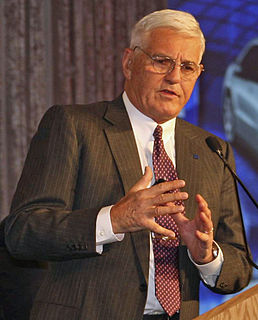A Quote by Carlo Ratti
The first autonomous cars date back to the late 20th century. But recent increases in sophistication and reductions in cost - reflected, for example, in cheap LIDAR systems, which can 'see' a street in 3D in a way similar to that of the human eye - are now bringing autonomous cars closer to the market.
Related Quotes
Autonomous vehicles, because they'll be able to operate at a lower cost, will be able to pull more consumers into the Lyft network. And as you have more people switching from using their own car, they'll be taking more rides that still require a person behind the wheel. We think that in the foreseeable future of the next five-plus years, the number of human drivers we need on the road is going to keep going up. Longer term, of course, when the cars are fully autonomous, there will be a big shift.
'The anthropocene' refers to the way we live now, in a highly globalized world, characterized by a large human population and powerful technologies that allow for "action at a distance" that aggregate apparently negligible acts into powerful forces that are transforming fundamental planetary systems. In this sense 'the anthropocene' refers to a period in which nature as an independent autonomous domain comes to an end or is under serious threat.
I used to think that, by the 21st century, cars would run on electricity rather than gasoline and would have guidance systems so that they actually drove themselves. Specially equipped roadways would transmit instructions to the cars, telling them where to go and how fast. I figured this would be in the lines painted on the roads.
First of all, the Social Security money belongs to Main Street, not to Wall Street. It needs to be said very clearly here that privatization is off the table... Social Security, as a matter of fact, is a better investment now than the stock market. There's a higher return. There's guaranteed cost-of-living increases. Privatization you have to worry about the value of your account.








































